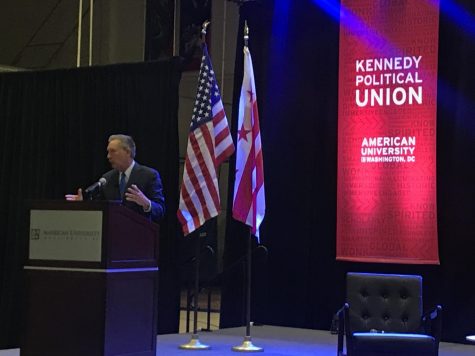AWOL Newswire Fall 2015
Opening hearts and homes
After the recent attacks in France, the French government decided to close the country’s borders as a safety measure, and many outgoing flights were canceled. This left a number of travelers stranded throughout the country, looking for places to stay.
Airbnb, a company founded in 2008 that facilitates partnerships between travelers looking for lodging and people willing to host them, has quickly become a popular way to find a quick and cheap room while on vacation or on the go. According to The Telegraph, Airbnb launched a disaster response initiative in 2013 and is currently offering its services to stranded travelers in Paris. It’s the first time the company’s disaster initiative has been activated in response to a terrorist attack.
Airbnb has asked hosts throughout the country to offer extended lodging for free or a relatively low cost to travelers to ensure that they have a place to stay, according to an email sent to hosts. The company is working with the French government to ensure that its services remain available for all. —Lydia Crouthamel.
Celestial Strip Mining
Private companies are one step closer to mining space for precious resources such as water and platinum. In mid-November, the U.S. Senate passed the Space Act of 2015, which would allow companies the rights to resources that they may one day be able to extract from space bodies, according to Popular Science. The bill, which is is expected to clear the House of Representatives as well, also extends the period of time in which private spacecraft companies can operate without a large amount of government oversight.
While the international Outer Space Treaty prevents any individual or state from owning property in space, the Space Act of 2015 would allow, under U.S. law, for individuals to retain the property rights to materials that they extract from “land” that no one owns. As the bill moves through Congress and onto President Obama, one concern that remains is the logic that allows one to claim rights to resources on property that, legally, belongs to no one. — Pamela Huber
SKIP THE CALCULATOR
A handful of restaurants have begun testing out a “no-tipping” policy as part of a growing trend across the United States. On Nov. 11, Joe’s Crab Shack became the first major chain restaurant to eliminate tips, testing the policy at 18 of its locations, raising menu prices and enacting higher, fixed wages to make up for it.
The move comes after Danny Meyer, founder of the “fine-casual” hamburger chain Shake Shack, decided in October to get rid of gratuities in his Union Square Hospitality Group’s restaurants, including the Museum of Modern Art’s two-Michelin-star restaurant, The Modern, and 12 other full-service establishments. He too chose to raise menu prices instead of incorporating a flat service charge (another alternative to replacing tips). — Andrea Lin
HOVERING TOWARD THE FUTURE
What do Justin Bieber, Wiz Khalifa and a pilgrim zipping around Mecca have in common? They’re all using hoverboards, the hottest new toy since the Segway.
Actually, the hoverboards of 2015 basically are Segways, albeit without handlebars. The gadgets, which can support up to 220 pounds, require a rider to lean backward and forward to change speeds, according to Quartz.
But are they worth spending $500? Probably not, if riders want to go faster than 10 mph, actually expect to fly or are particularly concerned about spontaneous combustion. That’s right—several house fires in London have been linked to the boards’ faulty charging terminals, according to Wired. This holiday season, it’s probably safer for parents to just get that darned pony. — Jess Anderson






